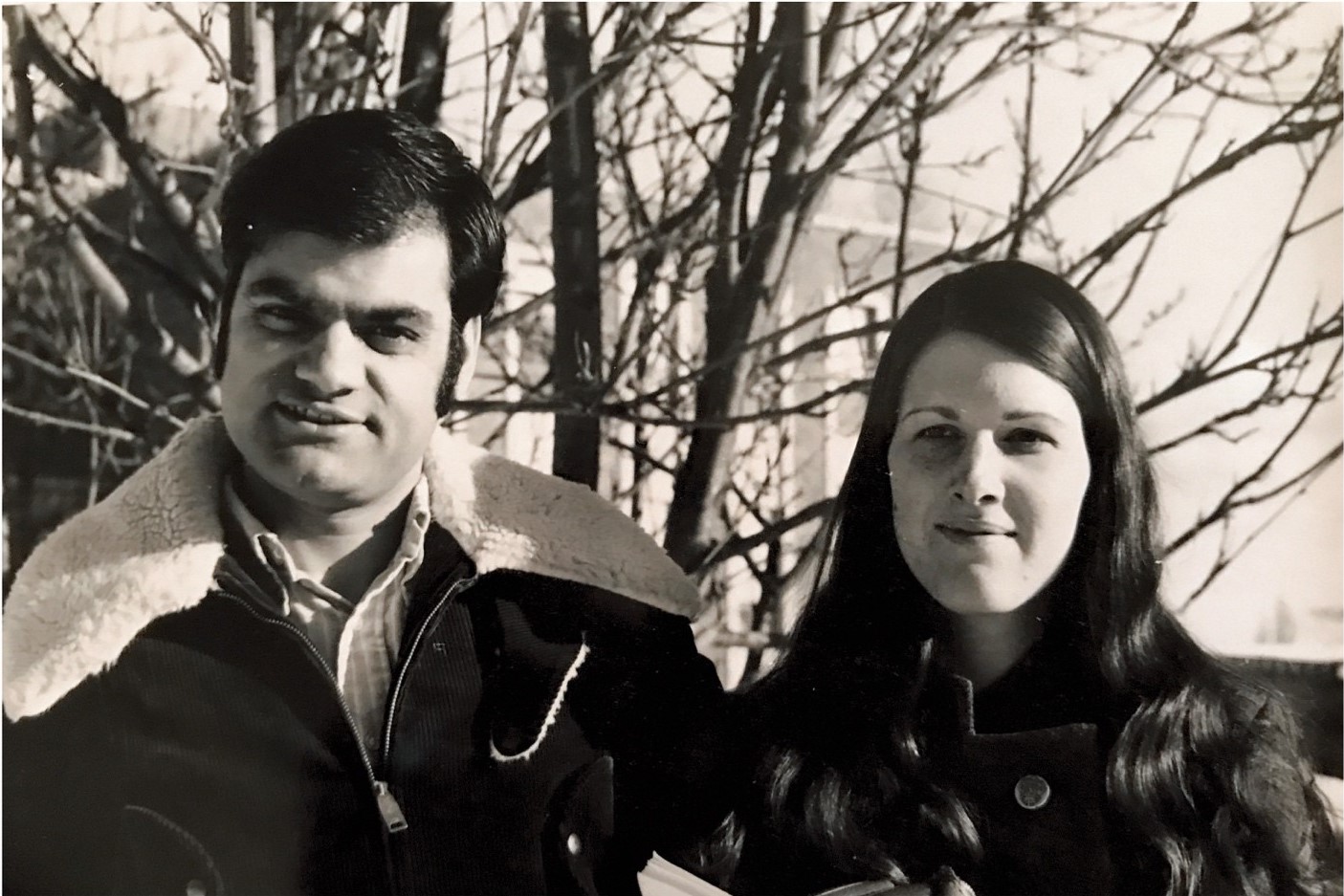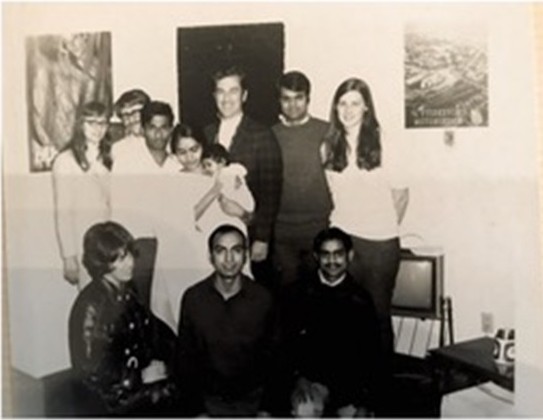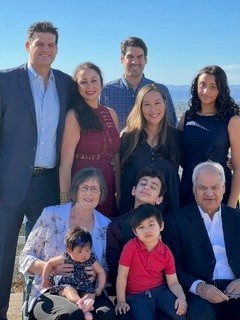Theresa Gabrielli
June 17, 2025
Hira Fotedar believes in paying it forward. The $250,000 Dr. Hira and Patricia Fotedar Endowed Fellowship will provide financial support and peace of mind to graduate students in MSE, helping to advance the field of materials science and better the world.

Hira and Patricia Fotedar met as UW students in the 1960s.
In 1962, a young Kashmiri Pandit man was given an opportunity – a merit scholarship to attend the Indian Institute of Technology (Banaras Hindu University) Varanasi (IIT-BHU) and study metallurgical engineering. He never forgot how impactful one gift could be.
“I see my life as driven by other people helping me. If I had not had a scholarship, I would not have been able to go to college,” said Hira Fotedar (MSE Ph.D. ’71).
While completing his undergraduate degree, Fotedar found himself most drawn to physical metallurgy. He joined the University of Washington for his graduate studies and became the first graduate student of now-emeritus professor Thomas Stoebe. Together, they built a lab from scratch to investigate the properties of various ionic solids such as lithium fluoride – materials so cutting-edge at the time, much of their funding was provided by NASA.

Fotedar with his fellow grad students at a social event hosted by their adviser, Thomas Stoebe.
Fotedar’s career took him on a global adventure. First, a postdoctoral fellowship at the Imperial College of Science and Technology, University of London. Then he was brought on as an associate professor at the Instituto de Pesquisas Energia Nuclear at the University of Sao Paulo, Brazil. In 1977, he found his home at the Eaton Corporation, where he held top leadership positions of increasing responsibility, retiring as vice president of corporate quality and operational excellence. He founded Fotedar Associates LLC a management consulting company after retirement in 2005. Fotedar has published over 30 technical papers and given 50 invited lectures at various seminars and conferences.
But throughout his professional life, he never forgot to help others along the way. In 1991, a visit to the refugee camps of displaced Kashmiri Pandits moved him to co-found the Indo-American Kashmir Forum, a refugee advocacy group that raised funds, collected clothes and campaigned for the safe return of his community to their homeland in Kashmir, India. He served as president of the Cleveland branch of Sewa International, during which he developed the ASPIRE program, raising money for tutoring and mentoring to at-risk high school students in the Cleveland, OH, area. He established a scholarship for undergraduate students at IIT-BHU, and followed that up with funding an endowed chair in Metallurgy, Materials Science and Engineering at IIT-BHU.
“I’m very interested in teaching and education. If I can support somebody to advance their career, it’s a big deal,” Fotedar said. “How can we help kids right from the very beginning to make an impact in their lives? Pat and I have been working with that very much.”

Now retired, Fotedar enjoys taking walks, reading, doing yoga and spending as much time as possible with his grandchildren.
Patricia Fotedar, Fotedar’s wife, holds degrees in English and education from the University of Washington, and shares his lifelong dedication to giving back. She spent many years supporting women’s shelters, helping victims of abuse to access services and education. In her forties, she went back to school and got her Master of Science in Social Administration from Case Western Reserve University, spending the rest of her career as a social worker. She and Fotedar met as students at the UW. “The university not only gave me a Ph.D. It gave me a wife!” he said.
It seems only natural, then, for the couple to continue their support of education and the underserved by establishing this new fellowship with UW MSE. When possible, the fellowship will prioritize students who are of Kashmiri Pandit heritage.
“I hope the people who get the fellowship become outstanding material scientists, then give back to the university,” said Fotedar. “Do the best you can in your field, go for the stars, because you have a very good education from the University of Washington. Then give back, have a multiplying effect of what we’re doing in philanthropy.”